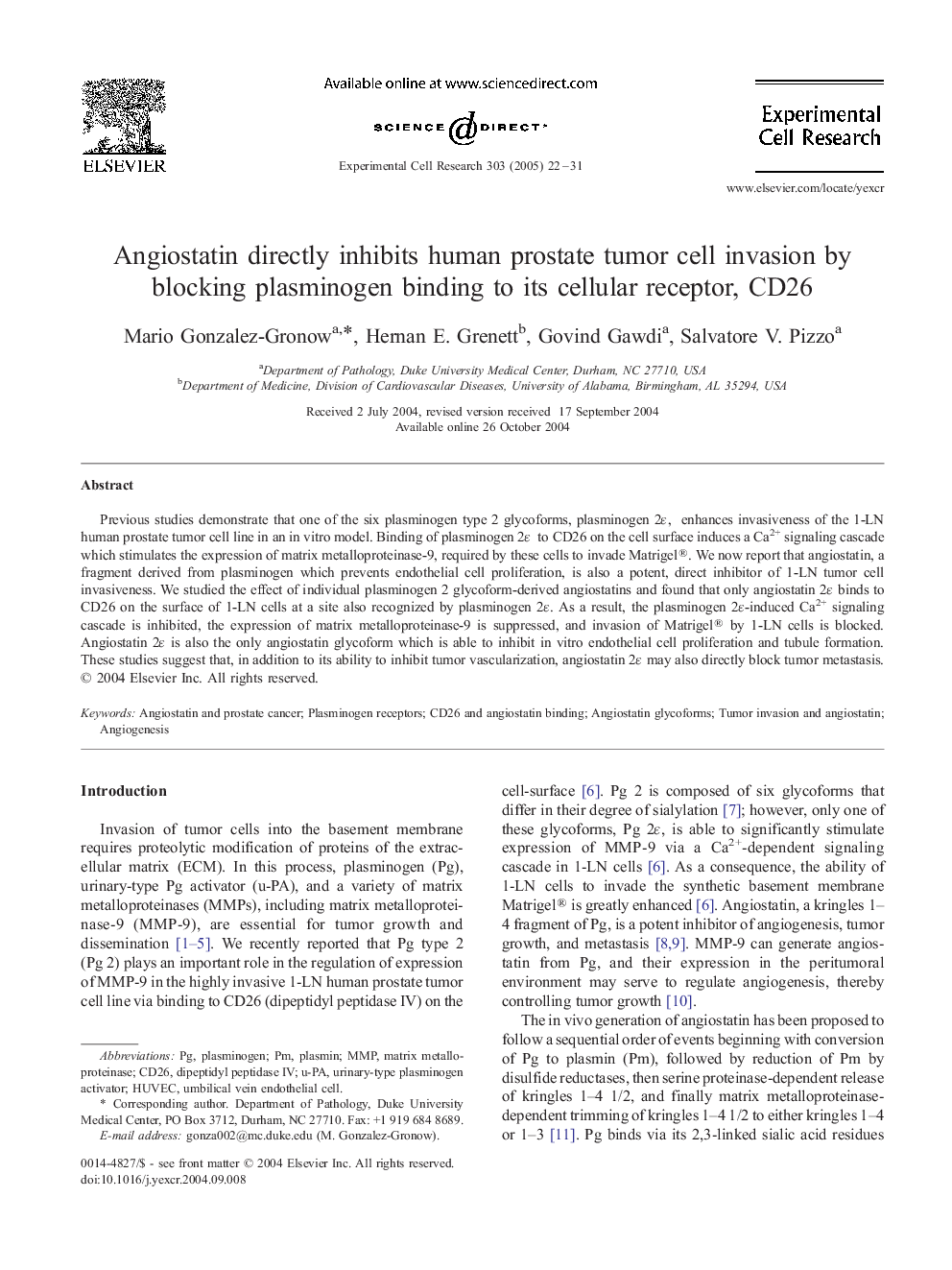| کد مقاله | کد نشریه | سال انتشار | مقاله انگلیسی | نسخه تمام متن |
|---|---|---|---|---|
| 10905088 | 1086724 | 2005 | 10 صفحه PDF | دانلود رایگان |
عنوان انگلیسی مقاله ISI
Angiostatin directly inhibits human prostate tumor cell invasion by blocking plasminogen binding to its cellular receptor, CD26
دانلود مقاله + سفارش ترجمه
دانلود مقاله ISI انگلیسی
رایگان برای ایرانیان
کلمات کلیدی
MMPHUVECCD26u-PA - U-PAAngiogenesis - آنژیوژنزurinary-type plasminogen activator - ادرار نوع پلاسمینوژن فعالdipeptidyl peptidase IV - دیپپتیدیل پپتیداز IVumbilical vein endothelial cell - سلول اندوتلیال ورید نابالغmatrix metalloproteinase - ماتریکس متالوپروتئینازPlasmin - پلاسمینPlasminogen - پلاسمینوژن
موضوعات مرتبط
علوم زیستی و بیوفناوری
بیوشیمی، ژنتیک و زیست شناسی مولکولی
تحقیقات سرطان
پیش نمایش صفحه اول مقاله

چکیده انگلیسی
Previous studies demonstrate that one of the six plasminogen type 2 glycoforms, plasminogen 2É, enhances invasiveness of the 1-LN human prostate tumor cell line in an in vitro model. Binding of plasminogen 2É to CD26 on the cell surface induces a Ca2+ signaling cascade which stimulates the expression of matrix metalloproteinase-9, required by these cells to invade Matrigel®. We now report that angiostatin, a fragment derived from plasminogen which prevents endothelial cell proliferation, is also a potent, direct inhibitor of 1-LN tumor cell invasiveness. We studied the effect of individual plasminogen 2 glycoform-derived angiostatins and found that only angiostatin 2É binds to CD26 on the surface of 1-LN cells at a site also recognized by plasminogen 2É. As a result, the plasminogen 2É-induced Ca2+ signaling cascade is inhibited, the expression of matrix metalloproteinase-9 is suppressed, and invasion of Matrigel® by 1-LN cells is blocked. Angiostatin 2É is also the only angiostatin glycoform which is able to inhibit in vitro endothelial cell proliferation and tubule formation. These studies suggest that, in addition to its ability to inhibit tumor vascularization, angiostatin 2É may also directly block tumor metastasis.
ناشر
Database: Elsevier - ScienceDirect (ساینس دایرکت)
Journal: Experimental Cell Research - Volume 303, Issue 1, 1 February 2005, Pages 22-31
Journal: Experimental Cell Research - Volume 303, Issue 1, 1 February 2005, Pages 22-31
نویسندگان
Mario Gonzalez-Gronow, Hernan E. Grenett, Govind Gawdi, Salvatore V. Pizzo,